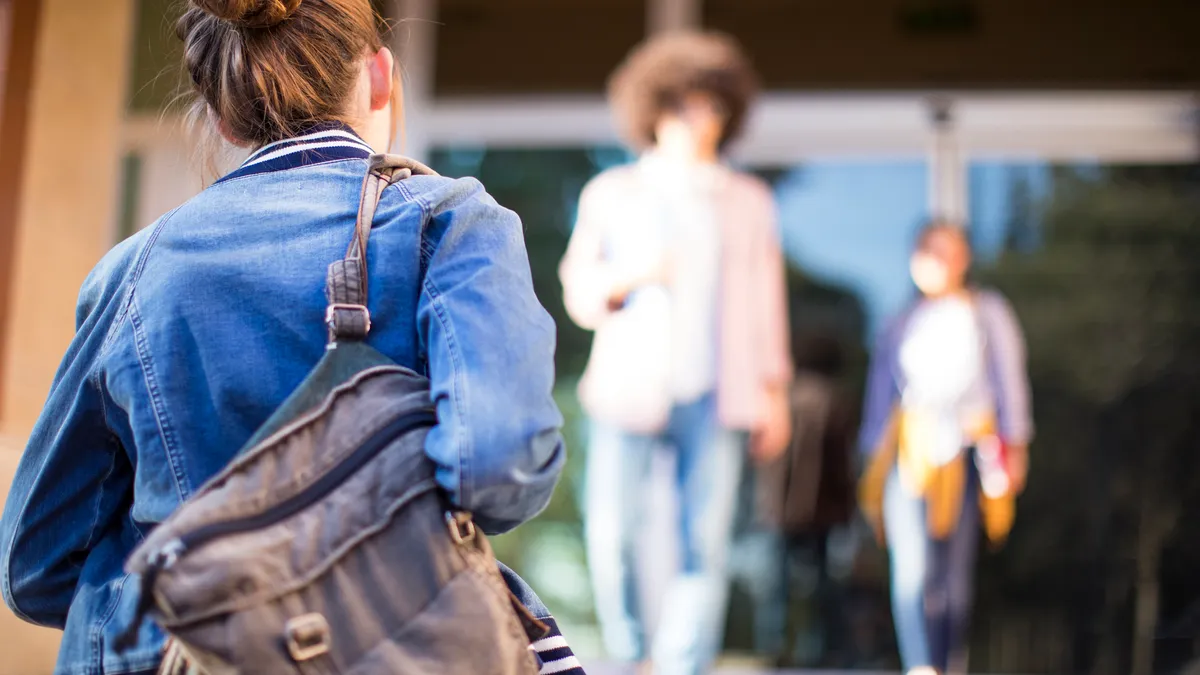Heather Y. Anichini is CEO of The Chicago Public Education Fund, Jenne Colasacco is executive director of the Lynch Leadership Academy at Boston College, Jennifer Stern is CEO of Great Minnesota Schools and Anne Wicks is director of the Education Reform Initiative at the George W. Bush Institute.
With schools across the country shuttered to prevent the spread of COVID-19, the academic year has been turned on its head.
No one knows what the impact of the prolonged closures will be, but the data we do have isn't promising. Researchers from Cornell University studied the long-term effects of repeated school closures in Argentina during the 1980s and ‘90s.
Students who lost an average of 88 days of classroom instruction went on to earn less in their 30s and 40s. They were more likely to be unemployed and less likely to be in a skilled profession. Worse still, there were serious equity implications: The learning gaps had a greater long-term impact on students from low-income households.
We can’t let that happen to our current generation of students.
Educators and families have gone to great lengths to ensure students continue learning while at home. But the reality is hard to ignore: Computers and worksheets can’t replace the classroom. Students are losing critical days of instruction. Access and opportunity gaps that existed before are widening.
To recover from that loss, we must invest in the people who know students best — principals and their teacher teams.
In many schools, principals are both building and instructional leaders. They are keenly aware of the challenges their students and communities face and are best positioned to implement tools and coach teachers to meet their students’ individual needs.
This unprecedented crisis requires an unprecedented response. Civic, education, nonprofit and philanthropic partners must work together to empower principals and their teacher teams to create the conditions in which students can continue to grow. Each organization has a role to play.
- Policy organizations must advocate for educators’ most important tool: time. Civic and district leaders are, for good reason, focused on responding to the immediate challenges presented by the COVID-19 crisis. But they will soon start exploring alternative options for recovering lost time, such as adding days to the academic calendar, extending the school day, and providing before-, after- and weekend-school support to students.
The approach will differ from place to place, but we can all play a role in ensuring educators have the time they need to help students recover — emotionally, academically and socially — from this crisis. Policy organizations and advocates can also help identify resources to pay for the extra — but essential — support.
- School partners must provide principals the right support. Listening is a critical part of any disaster response plan. Conducting interviews, focus groups and surveys with principals and their teacher teams can give organizations vital insight into “on the ground” conditions in schools. These findings should inform the design of programs and policy initiatives starting now and continuing throughout the recovery.
- Finally, everyone must help principals explicitly plan for re-entry. As schools reopen, principals will need to create spaces in which students feel welcomed, safe and engaged. Research on school districts impacted by natural disasters shows that providing wraparound supports for students helped school communities heal faster. Partner organizations can help districts and principals identify and vet the necessary outside experts required to help get everyone back on track.
By partnering to give principals what they need — including time and tailored support — education organizations can help school leaders in the effort to recoup some of what our students are losing and put us on firmer footing in the future.
Of course, this work doesn’t stop when schools reopen — or even next year. The effects of COVID-19 will persist long past the 2020-2021 school year. To ensure students continue to learn and grow, partners must keep their focus on empowering principals and their teacher teams.
COVID-19 has changed the nature of school permanently. Let’s support our educators to make it a change for the better.






 Dive Awards
Dive Awards





